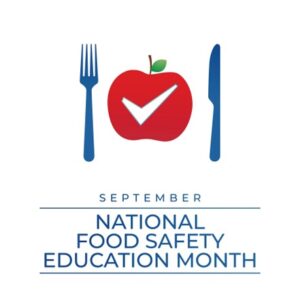Learn Safe Food Handling this National Food Safety Education Month
October is National Food Safety Education Month, an ideal time to focus on practices that help prevent foodborne illnesses and promote overall health. For residents in New Jersey, understanding the importance of food safety is essential, especially as it relates to gastrointestinal health. Consulting with a gastroenterologist in New Jersey can provide valuable insights into maintaining a healthy digestive system and preventing issues related to unsafe food practices.
Foodborne illnesses can cause significant discomfort and lead to more severe health complications if not addressed properly. The Medical Group of New Jersey is committed to helping you stay informed about food safety and offers the following tips to ensure you and your family stay healthy:

1. Follow Proper Hand Hygiene
One of the simplest yet most effective ways to prevent foodborne illnesses is by washing your hands thoroughly before and after handling food. Use warm water and soap and scrub your hands for at least 20 seconds. This practice helps eliminate harmful bacteria that can transfer from your hands to the food you’re preparing or consuming.
Store Food Safely
Proper food storage is crucial to prevent the growth of harmful bacteria. Perishable items such as meat, dairy, and leftovers should be stored in the refrigerator at 40°F or below. Be mindful of expiration dates, and when in doubt, throw it out. Additionally, make sure to store raw meat separately from ready-to-eat foods to prevent cross-contamination.
3.Cook Foods to the Right Temperature
Cooking food to the correct internal temperature is essential for killing harmful bacteria. Use a food thermometer to ensure meats, poultry, and seafood are cooked to the appropriate temperature. For instance, ground beef should be cooked to at least 160°F, while poultry should reach 165°F. Avoid relying solely on visual cues, as they can be misleading.
4. Avoid Cross-Contamination
Cross-contamination occurs when harmful bacteria spread from one surface to another. To prevent this, use separate cutting boards for raw meats and vegetables. Always wash utensils, cutting boards, and countertops with hot, soapy water after preparing raw foods. Additionally, never place cooked food on a plate that previously held raw meat without washing it first.
5. Stay Informed About Food Recalls
Food recalls happen more frequently than most people realize. Stay informed by checking reliable sources such as the FDA website for any food recalls or safety alerts. If a product you have purchased is recalled, follow the instructions provided, which often involve returning the product to the store or disposing of it safely.
A Gastroenterologist in New Jersey can Help with Foodborne Illness Health Concerns
Consulting with a gastroenterologist in New Jersey can help address any concerns related to foodborne illnesses and digestive health. By following these food safety tips, you can significantly reduce the risk of foodborne illnesses and maintain a healthy digestive system. The Medical Group of New Jersey is here to support you in your journey to better health and well-being.